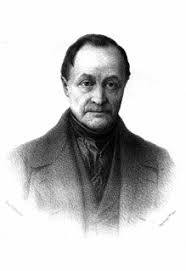
Auguste Comte was one of the earliest thinkers to conduct what we now call Sociology. One of his most influential ideas was the idea of the organic analogy.
Comte (1875) outlined society as being like a biological organism – perhaps easiest imagined as like a human body. Thinking about society this way, we can consider each social institution (social structures like the family, religion or media, for example) as like an organ (the heart, lungs, liver, etc) and society itself like the complete, living and functioning human body. Thinking about society in this way has come to be referred to as the organic analogy.
According to Comte, each part of society should be studied as one part of a larger whole. Each ‘organ’ is necessary to maintain the larger organism. The words organ, organism, social organism, organic, organic unity, organic whole and so on, can be found littered throughout Comte’s work in his discussions of the structure of society (see, for example, Comte, 1875, pp. 1, 2, 240, 274, 282, 283). Indeed, Comte makes the analogy explicitly:
…there is a real correspondence in the main analyses of the two sciences [of Biology and Sociology]. If we take the best ascertained points in Biology, we may decompose structure anatomically into elements, tissues, and organs. We have the same things in the Social Organism; and may even use the same names (Comte, 1875, p. 240).
(Comte, 1875, p. 240)
In Comte’s analysis, religious institutions and the family are two very important organs. We can use his ideas, however, to study any structure of society as part of a larger whole. We could, for example, consider how the education system, media or legal systems interact with and form part of wider society. With that said, Comte (1896) makes clear that the whole ‘organism’ of society should be the object of study for Sociology rather than studying each ‘organ’ independently:
…there can be no scientific study of society, either in its conditions or its movements, if it is separated into portions, and its divisions are studied apart.
(Comte, 1896, p. 188)
For the most part, Comte’s ideas are no longer part of the debate within contemporary Sociology. However, his work formed the basis for some of the most important thinkers in the field – many of which we will continue to discuss in other sections of this website. Notably, Durkheim and Spencer were both strongly influenced by Comte’s work.
References
Comte, A. (1875). System of Positive Polity (Vol. 2). London: Longmans, Green, and Co.
Comte, A. (1896). Positive Philosophy (Vol. 2). London: George Bell & Sons.